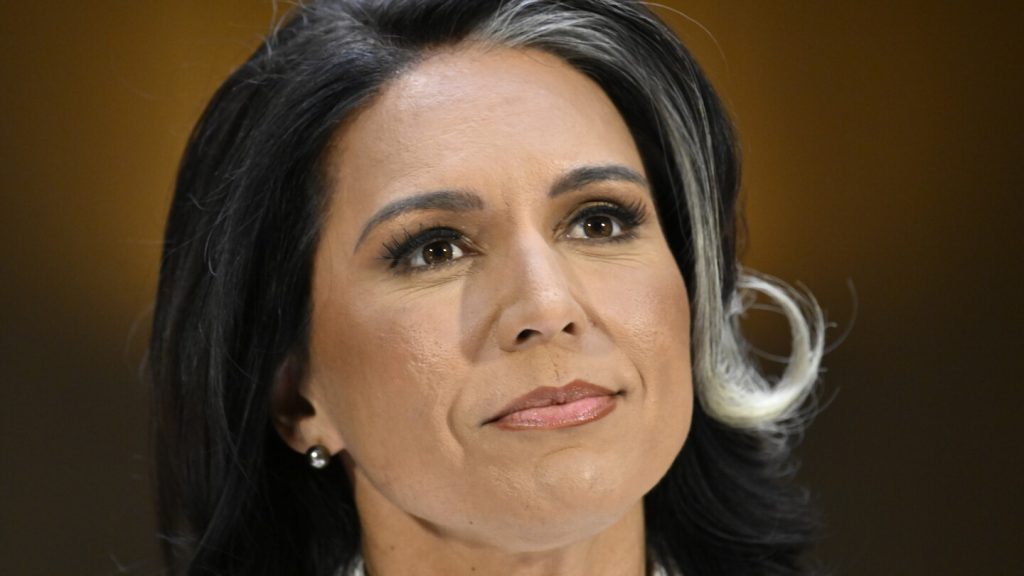Tulsi Gabbard Inches Closer to Director of National Intelligence Role Amid Controversy
Introduction: A New Chapter in National Security Leadership?
Tulsi Gabbard, a former Democratic congresswoman and veteran, is one step closer to becoming the next Director of National Intelligence (DNI) after the U.S. Senate advanced her nomination in a 52-46 procedural vote. The final vote, expected as early as Wednesday, will determine whether Gabbard will lead the Office of the Director of National Intelligence, a critical role established after the September 11, 2001, attacks. This office oversees 18 intelligence agencies, making it a pivotal position in national security. Gabbard’s nomination has been contentious, sparking debates due to her past statements and actions, which have drawn both criticism and support. Her confirmation would mark a significant shift in the leadership of U.S. intelligence, especially given her unique background and controversial viewpoints.
A Unique Background: Military Service and Political Ambition
Tulsi Gabbard, a lieutenant colonel in the National Guard, has a distinguished military career with two deployments to the Middle East. She also pursued a career in politics, serving as a Democratic congresswoman and even running for president in 2020. Her blend of military experience and political ambition has made her a notable figure in Washington. However, it is her past actions and statements that have made her one of President Trump’s most divisive nominees. Gabbard’s past praise for figures like Edward Snowden and her meeting with Syria’s former leader, Bashar Assad, have raised eyebrows and sparked intense scrutiny.
Controversies and Criticisms: A Divisive Nominee
Gabbard’s nomination has been met with strong opposition, primarily from Democrats, due to her controversial past. Her praise for Edward Snowden, the former NSA contractor who fled to Russia after revealing classified surveillance programs, has been a particular point of contention. During her Senate nomination hearing, Gabbard acknowledged that Snowden broke laws but argued that his revelations exposed unconstitutional surveillance practices. This stance has drawn sharp criticism, with many questioning her judgment and alignment with U.S. interests. Additionally, her 2017 visit with Bashar Assad, the now-deposed Syrian leader accused of war crimes, has been heavily criticized. Gabbard defended her meeting, stating that she used the opportunity to address Assad’s human rights abuses. However, her skepticism about Assad’s use of chemical weapons has further fueled concerns about her credibility.
Echoes of Russian Propaganda and Surveillance Stances
Gabbard has also faced criticism for echoing Russian propaganda, particularly regarding the invasion of Ukraine. Her past opposition to a key U.S. surveillance tool, though she now claims to support it, has added to the skepticism surrounding her nomination. These issues have led many to question whether she is the right candidate to lead the nation’s intelligence apparatus. Despite these challenges, Gabbard’s chances of confirmation improved last week when several Republican lawmakers, who had initially expressed concerns, affirmed their support. This shift came after a pressure campaign by Trump allies, including Elon Musk, urging Republican senators to back her nomination. With a thin Republican majority in the Senate, nearly all GOP senators will need to vote in favor of Gabbard for her to secure the position.
The Road Ahead: Challenges and Implications
The final vote on Gabbard’s nomination is expected to be tight, with strong Democratic opposition and only a slender Republican majority. If confirmed, Gabbard would take on a role that is crucial to the nation’s security and intelligence operations. Her leadership would have significant implications for how the U.S. approaches national security, surveillance, and international relations, particularly with Russia and Syria. Her past actions and statements suggest that she would bring a unique perspective to the role, one that could either challenge the status quo or raise further concerns about her loyalties and judgment. As the Senate prepares for the final vote, all eyes are on Gabbard and whether she will be entrusted with this critical position.
Conclusion: A Pivotal Moment in National Security Leadership
Tulsi Gabbard’s path to becoming the next Director of National Intelligence is fraught with controversy, but her nomination has also sparked important discussions about national security, surveillance, and international relations. If confirmed, Gabbard would bring a unique blend of military experience and political ambition to the role, but her past actions and statements have left many questioning her suitability. As the Senate prepares for its final vote, the nation waits with bated breath to see whether Gabbard will be given the opportunity to lead the U.S. intelligence community into a new era. Her confirmation would undeniably mark a significant shift in the leadership of U.S. intelligence, with far-reaching implications for the country’s national security landscape.












